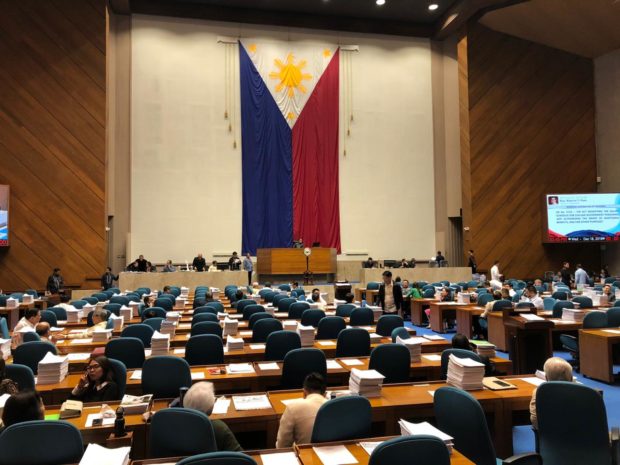MANILA, Philippines — While both the unofficial, and partial and official tallies of the Commission on Elections (Comelec) have provided voters a glimpse of who will get party-list seats, there is still confusion as to who can get posts in the House of Representatives.
Acting Comelec spokesperson John Rex Laudiangco explained to ABS-CBN Teleradyo’s On the Spot on Friday that 63 seats are up for grabs for party-list groups, with groups getting at least two percent of the votes allowed to get one seat in Congress.
However, as only a few groups got two percent of the total votes like in previous elections, Laudiangco said that other seats would be provided to the groups in two rounds — in accordance with the Supreme Court (SC) formula on the issue.
“Ang una po kasing pagtataya kung sino ang makaka-okupa ng 63 party-list seats — nakalagay po ‘yan sa batas, nakalagay po ‘yan sa formula ng Supreme Court — kukunin muna ‘yong total number of party-list votes. So lahat po ng boto ng party-list groups ay susumahin,” Laudiangco said.
“After that, the first step po, we will determine sino-sino ang naka-kuha ng two percent. Lahat po ng naka-kuha ng two percent automatic po may tig-iisang seat, ang tawag po dito ay guaranteed seats,” he added.
To ensure that the 63 party-list seats are filled up — still as per the SC ruling — the remaining seats will be distributed depending on how many votes a group got.
“So i-apply po natin ‘yong formula na dinivide ng Supreme Court. Medyo complicated po ito mathematically pero let’s break it down. Ang nangyayari po kasi titignan ‘yong mga butal pa, inawas na natin ‘yong two percent ano. So may mga butal-butal pa po ‘yan mula sa pinaka-maraming nakuha hanggang do’n sa pinaka-maliit ang nakuha,” Laudiangco noted.
“Magiging proportion ang distribution sa remaining seats. So ‘yong mas malaki ang nakuha, mula sa taas hanggang sa huli, madagdagan po sila. So most likely ‘yong topnatcher, lagi namang ganito, nakaka-tatlong seats po sila,” he added.
Laudiangco also mentioned that most of the time, the party-list group with the last seat gets around 200,000 to 300,000 votes.
As of now, in the partial and unofficial tally of Comelec, ACT-CIS still leads with 2.082 million votes, accounting to four percent of ballots counted. Next is 1-Rider with 991,051 votes, and Tingog with 873,231.
Party-list group Pusong Pinoy currently sits at the 50th spot, with 247,459 votes.
On Thursday night, the second report from the Comelec containing the partial and official tally showed ACT-CIS also leading with 1.112 votes, followed by Ako Bicol with 513,403 votes and 1-Rider with 453,712 votes.
READ: ACT-CIS, Ako Bicol, 1-Rider still dominate party-list contest
Laudiangco explained that all 63 seats should be filled or it will defeat the purpose of providing an avenue for underrepresented sectors.
“Practically ‘yong four percent or more, three seats po ‘yan. And then the remaining po after that, two seats. Meron pa pong third round po d’yan. Kung sakali po na ‘yong mga nando’n sa taas na-distributan, hindi pa po natin napuno ‘yong 63. Meron pa pong maiiwan po dyan na nasa dulo,” he said.
“So hanggang sa mapuno po ‘yon […] Kasi ang sabi po ng Korte Suprema kailangang mapuno ‘yong 63 seats dahil ito ay required ng constitution. Kung hindi siya mapupuno it will defeat the purpose of having party-list representatives,” he added.
There is a lot of controversy surrounding the party-list system, with no less than outgoing President Rodrigo Duterte advocating for the abolishment of the system which he said has been prone to abuse.
Duterte referred to the progressive organizations in the House of Representatives he believes are helping communist rebels. The groups have denied these accusations.
RELATED STORY:
Duterte to next president: Abolish party-list system
Duterte hits abuse of PH party-list system, calls for amendment


